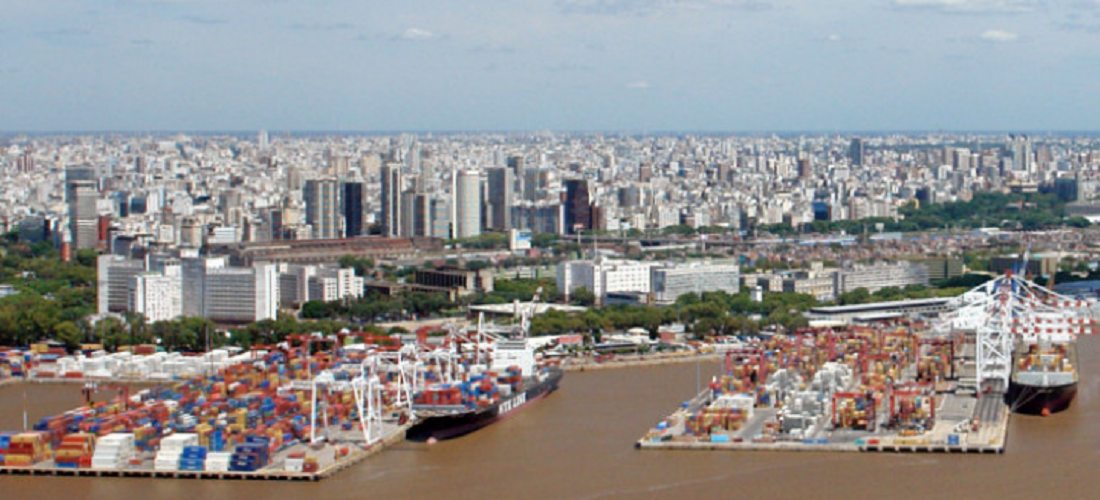
The Port of Buenos Aires is looking for a new identity as it nears its bid
Jan, 21, 2022 Posted by Gabriel MalheirosWeek 202203
The Port of Buenos Aires began to function in 1580 upon the arrival of Juan de Gray. Nowadays, foreign trade operators want to modernize it.
In order to enhance Argentina’s competitiveness, its main port must become more agile and more adaptable to the specificities of modern cargoes.
The ten-meter draft that it has maintained since its foundation makes the port incapable of receiving modern-sized liners. Investing in infrastructure, digitalization, and ensuring the quality of services at reasonable prices must prevail. These are the priorities mapped out by foreign trade specialists consulted by the La Nación, which have emphasized the need to elaborate a long-term strategic partnership at the port.
How to tune into today’s international trade? “With a modern logistics system that aids in the rapid transit of goods. If the objective is to comply with the WTO Trade Facilitation Agreement, it is essential to move quickly towards these changes”, highlights Enrique Loizzo, president of the Customs Broker Center (CDA in Spanish). He highlights that the institution has been meeting with foreign trade representatives to promote initiatives that are “traceable for all operators, and inviting to the public sector, with sustainable proposals”.
Loizzo believes that “a port community” must be formed from various perspectives, including “foreign trade operators, port authorities, customs, security firms, and related services.” Thus, at the end of 2021, meetings began with representatives from various business organizations, including the Chamber of Commerce and Services (CAC), the Chamber of Exporters (Cera), the Argentine Industrial Union (UIA), and the General Administration of Ports (AGP), to elaborate what concerns these organizations and present themto higher regulatory bodies like the Ministry of Transport, the Ministry of Production, Science and Technological Innovation.
Priorities
Among other priorities, these groups have established that the main issues to be solved are: the assignment of import shifts; excessive delays in operations within the terminals; communication difficulties, use of web tools; operations on inappropriate days and times; collection of charges and extra costs on high cube (HC) imports.
Fernando Furci, general manager of the Chamber of Importers (Cira), emphasizes the need for greater “transparency” in port operations, which “is reflected in the fact that shippers do not understand what they are being charged for.”
-
Shipping
Jan, 23, 2025
0
CMA CGM inks 2025’s largest ship orders to date
-
Sugar and Ethanol
Apr, 06, 2023
0
Brazil sugar output seen at over 40 mln tns, 2nd highest on record
-
Ports and Terminals
Mar, 08, 2021
0
More than 400 tons of asbestos seized at the Port of Santos
-
Ports and Terminals
Oct, 11, 2023
0
Cargo throughput in September up 11% at Port of Imbituba



